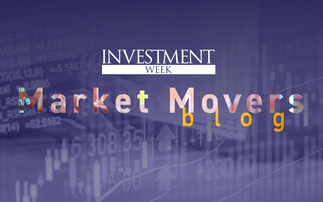As global equity markets struggle to recover after a turbulent few days, we take a closer look at the major issues still troubling investors.
1. Is this the start of a full-blown bear market, or just a correction?
As markets went into free-fall on Monday, investors could have been forgiven for fearing the worst as billions were wiped off global indices.
By mid-afternoon, the FTSE 100 had fallen 6%, although it recovered slightly to finish 4.7% lower at 5,899. This marked the first time the blue-chip index had sunk below the 6,000 mark since January 2013, with £96bn wiped off share values. It was a similar picture across the globe, as the Dow fell 1,000 points on opening, while emerging market equities and currencies were particularly badly hit.
However, with no new economic data to justify the slump, the consensus view is equities have suffered a correction rather than entered a bear market. Industry commentators have highlighted that a full-blown bear market normally requires an economic recession, and this scenario is highly unlikely for developed markets. So what happened, and why?
According to Mark Haefele, UBS Wealth Management global chief investment officer: "...the latest move has the hallmarks of a self-reinforcing correction driven by quantitative risk controls setting in across hedge funds, trading books, and dedicated quant strategies. After months of low volatility, a sudden spike has driven up the calculated risk in many strategies as heavy losses lead to a reduction in desired market exposure.
"Market moves compelled other investors to exit overcrowded consensus trades. This was illustrated by heavy selling of the dollar - a popular overweight position that has been profitable for much of the year. Gold, another safe haven asset that would typically benefit from market angst, was also down."
The hold-steady approach taken by professional investors as stocks markets plunged further into the red was particularly telling. While the speed and severity of the falls surprised, many were already cautiously positioned in anticipation of some kind of market pull-back. They clearly saw the rout as a buying opportunity, not an inflection point which would prompt radical portfolio shifts.
2. Is China out of control?
This question may be harder for investors to answer, but what the past few weeks have unequivocally demonstrated is the Chinese authorities have failed in their bid to stamp their authority over equity markets. The move by the People's Bank of China (PBOC) on Tuesday to cut the country's benchmark interest rates also failed to provide the necessary reassurance for investors, with the Shanghai Composite down 1.27% by the end of the following day's trading session.
According to Carmignac managing director and member of the investment committee Didier St-Georges, the loss of trust by global investors in the Chinese authorities following recent events should not be underestimated, as it plays a key role in influencing capital flows.
"Not only is their transparency very poor, but also their management of the domestic equity market bubble has been pitiful, so has been the management of its bursting, and later their decision and communication on the RMB," he said.
It is this lack of openness which fanned the flames of panic-selling over the past few days, as investors' concern grew about what the Chinese authorities were concealing on the health of the world's most powerful growth engine.
However, despite the painful exposure of the Chinese leadership's failure to control equity markets over recent weeks, the country's political structure still has the potential to stave off a full-blown crisis for the world's second largest economy.
According to Neptune Investment Management CEO Robin Geffen: "China's political economy is uniquely helpful, allowing it to bail out the financial system before a crisis occurs (which it is doing already, and which stands in stark contrast to Western governments).
"It also allows for strong fiscal support for the economy to be stepped up, financed by the central bank in a rare case of ‘helicopter' money policies being implemented."
3. Will the Fed stay its hand on raising interest rates?
The majority of commentators agree interest rate rises are likely to be pushed back until 2016 as the deflationary forces of lower commodity prices allow central banks to delay the inevitable.
BlackRock chief investment strategist Ross Koesterich commented: "If the Fed were to hike next month, this would imply a sharp spike in real interest rates (the interest rate minus inflation), a scenario that has historically been associated with more severe corrections for US equities."
Even before the recent sell-off, it was far from certain the Federal Reserve would raise rates as early as September. In its minutes from the 28-29 July meeting, the Fed said conditions for a hike were "approaching", but there was trepidation about firming rate policy too soon as pressures on inflation and concerns about China weighed. Only one member voted for a hike last month.
However, contrarian voices, including Neptune, believe the Fed will stick to its guns and raise rates this year.
"The debt imbalances within the US - which have been created as a result of cheap government-sponsored money - are not yet excessive in absolute terms, but they are growing quickly. The Federal Reserve will not want to delay correcting them. We believe it will see in the US an economy with enough fundamental strength from jobs growth and a housing recovery to allow for this," Neptune said.
All eyes will now be on this week's Jackson Hole meeting of central bankers for further clues on how policymakers will respond to recent events.
4. Is now the time to take advantage of market volatility and rebuild emerging market positions?
Even before Black Monday, emerging markets had suffered a punishing level of outflows (around $1trn over the past 13 months according to some estimates - roughly double the amount that flooded out during the financial crisis) as tumbling commodity prices, concerns over a China slowdown and fears over the impact of US rate rises weighed on sentiment.
According to Matthew Merritt, head of multi-asset strategy group at Insight Investment, emerging markets - particularly those with heavy exposure to commodities - are undergoing an adjustment and the safety valve has been their currencies.
"The process of adjustment in emerging markets is nasty, brutish, but ultimately necessary. [But] given more flexible exchange rate management regimes and a greater diversity of funding sources, particularly local currency debt, the contagion is unlikely to be as severe or widespread as the aftermath of the Asian currency crisis in 1997."
Commenting on emerging market and commodity volatility in recent weeks, Valentijn van Nieuwenhuijzen, head of multi-asset at NN Investment Partners, added: "It is noteworthy how large the consensus is, amongst active players in the markets, to be negative on these asset classes...moreover, technically speaking, many of these assets have now reached "over-sold" levels.
"Generally, these type of indicators can provide a contrarian signal, so a short-term bounce from the bottom cannot be excluded in these market segments at this point. How long these dynamics will last is also very difficult to assess; some of the China/EM ripple effects into the underlying fundamentals can easily come back to haunt markets in the more medium term.
"For us, current investor behaviour is actually only a reason not to increase our underweights in the EM and commodity-sensitive areas as we keep fixed income spreads (large EMD/US HY weight) and commodities at medium."
It is these potential ‘ripple effects' which are concerning investment groups like Charles Stanley which is "very cautious on emerging markets, and is resisting buying in those markets despite the attractiveness of valuations on face value".
However, other investors are identifying buying opportunities. Dan Kemp, Morningstar Investment Management chief investment officer EMEA, said it was "taking advantage of volatility to increase exposure to high quality assets that have become attractively priced, including emerging market equities".












